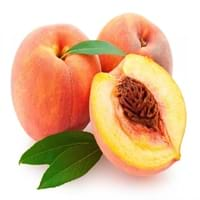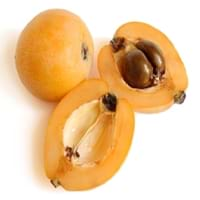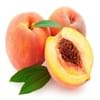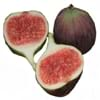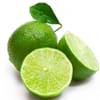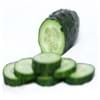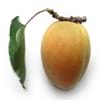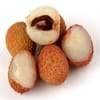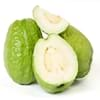Health Benefits
Cancer prevention, Heart care, Improves eye vision, Reduces stress, Regulation of heart rate
Cancer prevention, Heart care, Reduces nervous tension, Reduces blood circulation problems, Reduces stress, Regulation of heart rate, Strengthening of bones
General Benefits
Anti oxidant properties, Eye care
Anti-inflammatory properties, Controls blood pressure, Digestive aid, Eye care, Helps in weight loss, Improves eye vision, Maintains healthy cholesterol level, Strengthens bones
Skin Benefits
Heals sunburn, Reduces wrinkles, Treatment of skin diseases
Anti-aging benefits, Reduces wrinkles, Treatment of dark spots, Treatment of skin diseases
Hair Benefits
Prevents hair loss
Protects hair
Allergy Symptoms
Abdominal pains, Anaphylaxis, Breathing difficulty, Diarrhea, Dizziness, Hives, Itching, Lightheadedness, Nasal congestion, Nausea, Swelling of mouth, tongue or lips, Tingling sensation in mouth, Vomiting, Wheezing
Diarrhea, Itching of mouth, Nasal congestion, Sneezing, Swelling of face, Watery eyes
Side Effects
Allergic reaction
Allergic reaction
Best Time to Eat
As a snack in the late afternoon, Eat the fresh ones, avoid mixing with any other foods, don't eat after meal., Morning time (before lunch)
Along with meal, As a snack in the late afternoon, Don't consume at night and before bed, Morning time (before lunch)
Vitamin B5 (Pantothenic Acid)
Not Available
Vitamin C (Ascorbic Acid)
Not Available
Vitamin E (Tocopherole)
Not Available
Vitamin K (Phyllochinone)
Not Available
Lutein+Zeaxanthin
Not Available
Calories in Fresh Fruit with Peel
Calories in Fresh Fruit without Peel
Not Available
Not Available
Calories in Frozen Form
Not Available
Calories in Dried Form
Not Available
Calories in Juice
Not Available
Calories in Jam
Not Available
Calories in Pie
Not Available
Type
Tree fruit
Tree fruit, Tropical
Season
Autumn, Summer
Winter
Varieties
Reliance, Sweet Scarlet, Spring Snow, Sugar May, Santa Rosa, Red Beauty, Glowhaven, Cresthaven and Redhaven Peaches
Ahdar, Ahmar, Asfar, Blush, Champagne, Early Red, Eulalia, Fire Ball, Golden Red, Golden Yellow, Oliver, Thales, Thames Pride, Victor and Wolfe
Color
Pink, Red, White, Yellow, Yellowish-orange
Orange, Yellow
Inside Color
Yellow
Orange
Soil Type
Sandy loam, Well-drained
Clay, Loam, Sand, Well-drained
Climatic Conditions
Cold, Warm
Warm to hot climate
Facts about
- In china, peaches are considered as a symbol of good luck.
- From 1982, august is National peach month in USA.
- In roman times, Peaches were also called as Persian apples, as people assumed that they originated from Persia.
- Loquats are used in plum wine manufacturing.
- Dried leaves of loquat are used to make herbal tea.
- The seeds of loquat are slightly toxic & the symptoms of intoxication are nausea, vomiting & shortness of breath.
Other Countries
Greece, Italy, Spain, United States of America
Brazil, Chile, China, Egypt, Israel, Italy, Morocco, Pakistan, Portugal, Spain, Turkey
Top Importer
Germany
China
Botanical Name
Prunus persica
Eriobotrya japonica
Synonym
Not Available
Crataegus bibas or Mespilus japonica or Photinia japonica
Subkingdom
Tracheobionta
Tracheobionta
Division
Magnoliophyta
Magnoliophyta
Class
Magnoliopsida
Magnoliopsida
Species
P. persica
E. japonica
Difference Between Peach and Loquat
We might think that Peach and Loquat are similar with respect to nutritional value and health benefits. But the nutrient content of both fruits is different. Peach and Loquat Facts such as their taste, shape, color, and size are also distinct. The difference between Peach and Loquat is explained here.
The amount of calories in 100 gm of fresh Peach and Loquat with peel is 39.00 kcal and 47.00 kcal and the amount of calories without peel is Not Available and Not Available respectively. Thus, Peach and Loquat belong to Low Calorie Fruits and Low Calorie Fruits category.These fruits might or might not differ with respect to their scientific classification. The order of Peach and Loquat is Rosales and Rosales respectively. Peach belongs to Rosaceae family and Loquat belongs to Rosaceae family. Peach belongs to Prunus genus of P. persica species and Loquat belongs to Eriobotrya genus of E. japonica species. Beings plants, both fruits belong to Plantae Kingdom.
